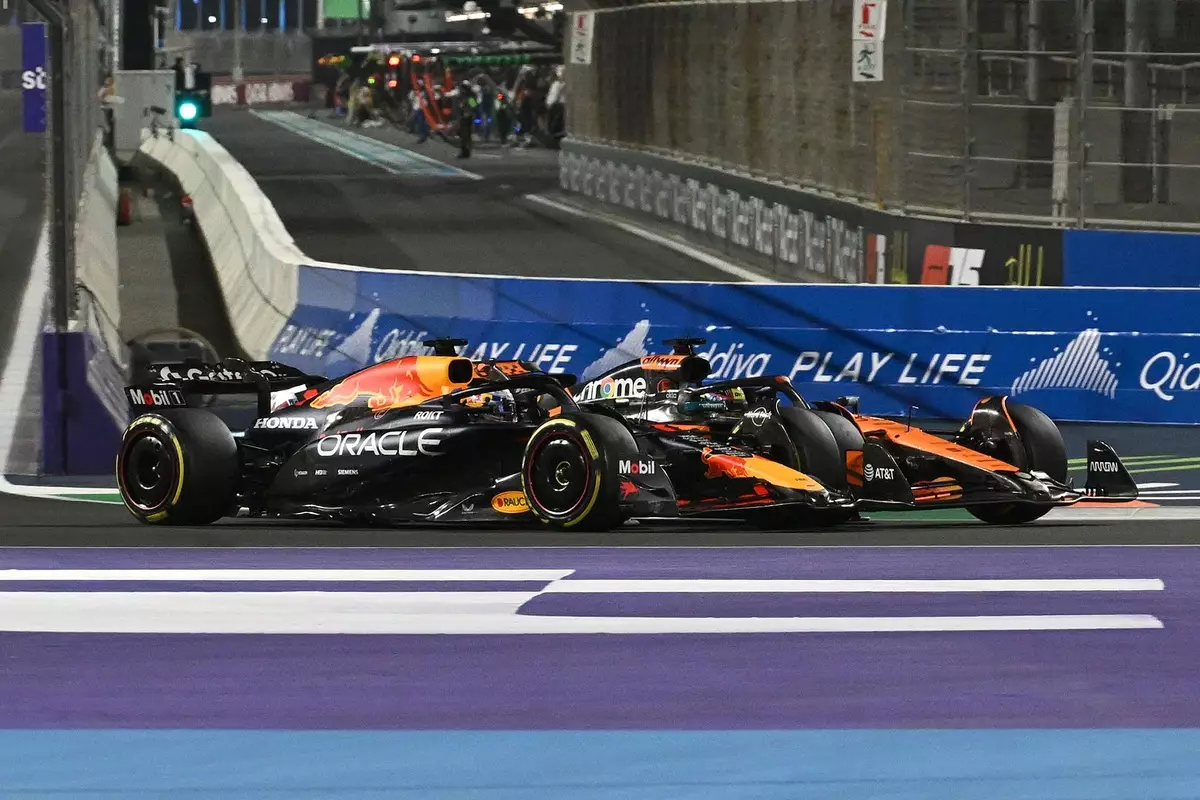The Saudi Arabian Grand Prix was a spectacle rife with high-octane action and intense competition, but it also highlighted the intense scrutiny of decisions made by race officials. Central to this drama was Red Bull’s star driver, Max Verstappen, who found himself embroiled in controversy following a five-second penalty imposed for a track limits infringement. After an aggressive early battle with McLaren’s Oscar Piastri, Verstappen was deemed to have left the track and secured a lasting advantage, a decision that would become the crux of a contentious discussion between the team and the FIA stewards.
In motorsport, every race offers not just competition among drivers but also an intricate dance of rules and regulations that can sway the fortunes of teams. In a post-race engagement filled with palpable frustration, Christian Horner, Red Bull’s team principal, took the opportunity to present onboard footage that he believed substantiated their claim—that Verstappen had not gained an unfair advantage. This interaction exemplifies the tension between racing instincts and regulatory interpretations, a dynamic that often leads to fervent debates in the pit lane and beyond.
The Decision to Refrain from Appeal
Despite the heated exchanges and evident passion from Horner, Red Bull has faced a crucial decision: whether to seek a right-of-review petition against the stewards’ ruling. Ultimately, the franchise decided against it, firmly acknowledging that the likelihood of overturning the penalty was slim. The rationale seems rooted in pragmatism; continuing to pursue the issue may have led to further entrenchment of the stewards’ viewpoint, according to Horner.
Horner’s candid comments reveal both the strategic considerations and emotional investment in such decisions. “They think it was a slam dunk,” he stated, implying that the stewards felt confident about their judgment. By choosing to respect the stewards’ ruling, Red Bull is prioritizing long-term stability and focusing on competing rather than embroiling itself in an appeals process that could have diluted their momentum or invited further scrutiny.
The Race Dynamics: A Closer Look
What makes this situation particularly compelling is the intricate nature of the events that transpired during the race. The mechanics of Formula 1 are such that a key moment—such as the one between Verstappen and Piastri—is analyzed through a lens that considers both technical regulations and the ethos of fair racing. In this case, stewards deemed that Piastri was fully alongside Verstappen at a critical corner, which prompted the admonition that Verstappen should have yielded room.
Such moments have larger implications than just the race result; they feed into the narratives that shape a team’s reputation, driver confidence, and fan engagement. For Red Bull and Verstappen, the decision to fight versus accept a penalty can set a precedent for their approach in future races. How they handle the situation collectively—absorbing the lessons and moving past the frustration—will ultimately define their season.
External Influences and Implications
Another layer to this unfolding drama involves the broader context of Formula 1 governance and the perceived fairness of the stewarding process. Reactions from fans and pundits alike reveal a common sentiment that stewards often face an uphill battle when it comes to maintaining clarity and consistency in their rulings. Horner’s remarks about providing additional footage illustrate a frustration with the process, suggesting a systemic issue in how race officials are empowered to make decisions without complete access to all relevant data in real time.
It also raises questions about the standards of accountability for the stewards themselves. If a team believes they’re disadvantaged by a decision made without complete context, it promotes debates about procedural integrity and the validity of in-race judgments. Such discussions are vital for the evolution of the sport, where resolving ambiguity can help maintain competitor trust and viewer engagement.
The Path Forward for Red Bull
In choosing not to challenge the stewards’ verdict, Red Bull has opted for a path that prioritizes focus and resource allocation in an intensely competitive environment. This decision speaks volumes about their strategic vision, allowing them to redirect their energy towards future races and revealing a maturity that may prove essential as the championship unfolds. The lessons learned in Jeddah could well serve as a catalyst for performance enhancements, driving home the point that in the world of F1, a singular moment can bring forth both adversity and opportunity.

